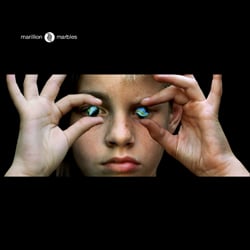/PAlogo_v2.gif) |
|
Post Reply 
|
Page <1 34567 8> |
| Author | ||||
infocat 
Forum Senior Member 

VIP Member Joined: June 10 2011 Location: Colorado, USA Status: Offline Points: 4671 |
 Posted: February 18 2017 at 16:26 Posted: February 18 2017 at 16:26 |
|||
|
I prefer Elite progists.
|
||||
|
--
Frank Swarbrick Belief is not Truth. |
||||
 |
||||
Thatfabulousalien 
Forum Senior Member 

Joined: October 27 2016 Location: Aussie/NZ Status: Offline Points: 1409 |
 Posted: February 18 2017 at 16:44 Posted: February 18 2017 at 16:44 |
|||
Cool, someone recognized Ferneyhough!  Not my favorite composer but he's damn awesome! My point in posting that anyway was that intricate polyphony is more complex then simply playing something in a fast tempo. A lot of prog (not all) is not as complex as we make it out, but it is a virtuoso subgenre in general
 |
||||
|
Classical music isn't dead, it's more alive than it's ever been. It's just not on MTV.
https://www.soundcloud.com/user-322914325 |
||||
 |
||||
floyd4 
Forum Groupie 

Joined: February 05 2017 Location: Minnesota Status: Offline Points: 57 |
 Posted: February 18 2017 at 18:17 Posted: February 18 2017 at 18:17 |
|||
|
I asked one of my friends why he doesn't like Pink Floyd and he said they were "too experimental"
Seriously? Isn't the point of prog to be experimental?< id="_npfido" ="applicationpfido" height="0">
|
||||
 |
||||
floyd4 
Forum Groupie 

Joined: February 05 2017 Location: Minnesota Status: Offline Points: 57 |
 Posted: February 18 2017 at 18:26 Posted: February 18 2017 at 18:26 |
|||
|
Also I find it weird that people judge Pink Floyd by albums after Echoes. The complexity of them was at a high point with Atom Heart Mother Suite.< id="_npfido" ="applicationpfido" height="0">
|
||||
 |
||||
Tillerman88 
Forum Senior Member 
Joined: October 31 2015 Location: Tomorrowland Status: Offline Points: 495 |
 Posted: February 18 2017 at 19:09 Posted: February 18 2017 at 19:09 |
|||
Been trying but no way...... just can't find any math on sound/music comprehension  Nevertheless , I reckon that many musicians don't even know the intrinsic use of basic math rules when they are playing music (and also composing, for sure.) And as a matter of fact , many mathematicians are fond of music (if not most of them, I wonder), but this doesn't mean that most musicians are fond of mathematics.... In other words, there are many musicians who are good in music but not in math. Music is a lot more than notes conforming to mathematical patterns and formulas, indeed music is exhilarating because of the intricacies of the patterns that occurs. But.... whether or not these patterns resemble math has no relevance to many musicians... More often than not, musicians are inclined to practice music because of the wonders and awe that they feel for music even if they are not aware of the math that is in music.
Edited by Tillerman88 - February 18 2017 at 19:12 |
||||
 |
||||
Magnum Vaeltaja 
Special Collaborator 

Honorary Collaborator Joined: July 01 2015 Location: Out East Status: Offline Points: 6777 |
 Posted: February 18 2017 at 21:17 Posted: February 18 2017 at 21:17 |
|||
Because those are the Floyd albums that every knows.
|
||||
|
when i was a kid a doller was worth ten dollers - now a doller couldnt even buy you fifty cents
|
||||
 |
||||
siLLy puPPy 
Special Collaborator 

PSIKE, JRF/Canterbury, P Metal, Eclectic Joined: October 05 2013 Location: SFcaUsA Status: Offline Points: 14717 |
 Posted: February 18 2017 at 21:24 Posted: February 18 2017 at 21:24 |
|||
It doesn't matter if a musician understands what s/he is doing. The mathetmatical part is inherit in our nature and doesn't have to be formally studied to achieve
|
||||
 https://rateyourmusic.com/~siLLy_puPPy |
||||
 |
||||
siLLy puPPy 
Special Collaborator 

PSIKE, JRF/Canterbury, P Metal, Eclectic Joined: October 05 2013 Location: SFcaUsA Status: Offline Points: 14717 |
 Posted: February 18 2017 at 21:27 Posted: February 18 2017 at 21:27 |
|||
This article explains where i'm coming from although i don't disagree with your analysis From the rich complexity of the Bach fugues to the catchy songs of the Beatles, music and mathematics overlap in all kinds of interesting ways. Beyond the basic uses of mathematics in music theory and notation (such as chords, time signatures, or dotted half-notes representing a count of three), music has also been the source of research in many areas of mathematics such as abstract algebra, set theory and number theory. Would you believe that research has shown that certain pieces of music end up being more popular and mainstream due to their ‘mathematical’ structure? For example, Pachelbel’s Canon in D — sure to be a top choice for brides again this summer — is said to reach the masses because of its repetitive structure, a trend very apparent in music today. No doubt the amazing popularity of hip-hop music, with its rhythmic beats and looping breaks, is partially due to our innate mathematical need for rhythm and patterns. Jason Brown, professor of mathematics at Dalhousie University, used a mathematical tool called a “Fourier Transform” to analyse and solve the decades-old mystery of which instruments and notes actually make up that wild opening chord of the Beatles’ song A Hard Day’s Night. Hint: it’s more than George Harrison’s 12-string guitar. Brown is now using his sound-wave analysis of Beatles music as inspiration for new songs. (Check out his piece A Million Whys online to see how it’s working.) In the field of cognitive research, the mind-body connections between music and mathematics have fuelled continuing debate surrounding the so-called “Mozart Effect,” which was first popularized in the early 1990s. In some studies, test subjects performed better on spatial-temporal tasks — such as visualizing a boat in one’s mind and then building it with Lego pieces — immediately following exposure to a Mozart sonata. This might be explained by the fact that the same parts of the brain are active when listening to Mozart as when engaged in spatial-temporal reasoning. Dr. Frances Rauscher of the University of Wisconsin Oshkosh has been heavily involved in research on music and cognitive performance. She gives far more credit to the active playing of instruments than simply passive listening. In her 2006 article published in the Educational Psychologist, she explains that “young children provided with instrumental instruction score significantly higher on tasks measuring spatial-temporal cognition, hand-eye coordination and arithmetic.” Part of this is due to the amount of overlap between music skills and math skills. For example, Rauscher says the part-whole concept that is necessary for understanding fractions, decimals and per cents is highly relevant in understanding rhythm. “A literate musician is required to continually mentally subdivide beat to arrive at the correct interpretation of rhythmic notation,” she writes. “The context has changed, but the structure of the problem is essentially the same as any part-whole problem posed mathematically.” The visual and spatial skills that a child exercises every time he practises an instrument and plays music strengthen his mental-physical connection. The link between the physical practice of music and strong mathematical abilities are demonstrated in studies that show that kids who play a musical instrument can perform more complex arithmetical operations than those who do not play an instrument. The slow work of practice, the attention to detail and the discipline it takes to learn an instrument are also excellent preparation for the practice involved in building strong math skills. The math-music connection shines in the field of education as well. Research shows that children who learn their academics through music and dance retain the information better than children who learn the same concepts by verbal instruction. You may have noticed this yourself if your children are in a school participating in the Learning Through The Arts program established by the Royal Conservatory of Music. In LTTA, teachers and professional artists collaborate on lessons using art, dance, story and song to explore math, science and other subject areas. So the next time you find yourself wanting to get up and dance to the music, remember that those pleasurable patterns of rhythm, beat, harmony and melody are actually embodied mathematical expressions. Next week: When you think about careers that use math, do you get stumped right after “accountant”? In next week’s column, Dr. Gupta will highlight ten careers which require top-notch quantitative skills. I guarantee you’ll be surprised! Arvind Gupta is a father of three, a mathematician and scientific director of MITACS, a national research network focused on connecting university-based math researchers with companies and other organizations to solve real-world challenges. For more information on MITACS, visit www.mitacs.ca. Arvind Gupta answers your math questions Lee Woods This excellent series on math is long overdue! I have noticed with alarm my teenage daughter and her friends seem to be squeaking by in their math classes. They seem to believe that math is for boys only and they "dumb" down constantly. They all want to be famous like Beyoncé and don't seem to understand the importance of math and science. In our cult of celebrity worship, this attitude is encouraged in school and society. I want my daughter and all young women to pursue the careers of their choice but not all these girls are going to be rich movie stars and rock stars. These are the same women that have trouble counting out change in their part-time retail jobs even when the cash register shows them the exact amount. How can parents get their kids able to function at the standard level required in the real world while working towards their dream jobs? I am very worried about my daughter's future and worry she will be left behind. How can I get my daughter interested in math before it is too late? Hi Lee, I'm glad you see the need to promote math, science, technology, and engineering with young women. And as you are aware, keeping your teenage daughter's interest and confidence in math is crucial. We all know what a big difference a little intrinsic motivation can make. As a start, make it personal and find out what careers interest your daughter. Take a look at the math websites we posted with the March 31 “Math and Gender” article like GirlsareIT, Girlsgotech, and girlstart on the Vancouver Sun website and show your daughter some new possibilities while surfing together. You will find career descriptions, bios of professional women, and tips for parents on how to encourage their daughters to pursue math, science, technology, and engineering. Locally, Science World has a program called Opening the Door. This is a networking event for students in Grades 10-12 who are interested careers in science, technology, engineering or mathematics. The program provides students with the opportunity to meet professional scientists, engineers, technologists and technicians who work in a variety of fields. The key is to connect kids with real people who have careers which use math and science. Science World also has a program called Scientists & Innovators in the Schools, which brings engineers technologists and technicians into B.C. schools to speak to children in Grades K to 12 about their research. Perhaps talk to your daughter's math teacher about inviting a local scientist or business person who uses math in their job into the classroom. Another site that I came across that looks fabulous is the Expanding Your Horizons conference network in the United States. They provide support to professional women in sciences, technology, engineering, and mathematics, who want to plan and deliver a conference to encourage young women like your daughter to keep up their math and science studies for future opportunities. Suggest that your daughter search “Expanding Your Horizons” in YouTube to see how exciting the possibilities are. Also very timely — next week's Math Matters article will reveal 10 fabulous careers that use math. And they are not the usual ones which you would think of! On a daily basis, do all that you can to encourage and help her be successful in math at school. Check with her teacher to see what support you can help provide at home. You could also take a look back at our original Math Matters article about why we all need math. Don't despair and keep looking for that hook — that career or situation that will show her the connection between math and her future. Math tips for parents Are those struggles getting your child to practise her instrument every day worth your trouble? The simple answer: Yes! Not only is your child developing her ability to make beautiful music, but she is also strengthening her mind for mathematical thinking. Keith Devlin in his book, The Math Gene, points out that musicians and mathematicians alike both use abstract notation to describe on paper the patterns that exist in their mind. A trained musician reading musical symbols moves straight to “hearing” in his mind the sounds that the symbols represent. Similarly, a trained mathematician reading mathematical symbols moves directly to think about the patterns that the symbols represent. It’s not surprising then that medical imaging shows the brains of professional musicians when listening to music are similar to the images of brain activity of professional mathematicians solving a mathematical problem. Although the imaging of amateur musicians and mathematicians has not always shown the use of similar circuits in the brain, the potential for mathematical and musical neural pathways to complement each other exists if your child keeps practising that guitar! Whether your child practises and composes music daily, or just enjoys dancing around the house to music, providing the right music for the right purpose can help your child learn in general but potentially excel at mathematics. Play music in the background during a lesson or homework session. Music can activate us emotionally, mentally and physically to help us remember the learning experience and information. Music can also create a highly focused learning state in which large amounts of content information can be processed and learned. Baroque music, such as that composed by Bach or Handel that is 50 to 80 beats per minute creates an atmosphere of focus that leads students into deep concentration in the alpha brain wave state. Learning vocabulary, memorizing facts or reading to this music is highly effective. On the other hand, energizing Mozart music assists in holding attention during sleepy times of day and helps students stay alert while reading or working on projects. When helping your child with memorizing facts or figures, be they mathematical or not, try putting the information to rhythm or rhyme. These catchy, musical elements will provide a hook to help her recall those important details in stressful situations. These songs, chants, poems, and raps will improve the memory of content facts and details. Dr. Arvind Gupta Edited by siLLy puPPy - February 18 2017 at 21:29 |
||||
 https://rateyourmusic.com/~siLLy_puPPy |
||||
 |
||||
Kepler62 
Forum Senior Member 

Joined: February 09 2017 Location: Fort Erie Status: Offline Points: 501 |
 Posted: February 18 2017 at 23:07 Posted: February 18 2017 at 23:07 |
|||
|
Wow! You guys have a lot of time. I can tell that you don't listen to Hank Williams.
Edited by Kepler62 - February 19 2017 at 00:25 |
||||
 |
||||
Dean 
Special Collaborator 

Retired Admin and Amateur Layabout Joined: May 13 2007 Location: Europe Status: Offline Points: 37575 |
 Posted: February 19 2017 at 02:27 Posted: February 19 2017 at 02:27 |
|||
|
And where the fu*k were you guys when I was getting my arse kicked for having the temerity to suggest that harmony was mathematical?

|
||||
|
What?
|
||||
 |
||||
Tapfret 
Special Collaborator 

Honorary Collaborator / Retired Admin Joined: August 12 2007 Location: Bryant, Wa Status: Offline Points: 8571 |
 Posted: February 19 2017 at 02:55 Posted: February 19 2017 at 02:55 |
|||
|
^What sort of boob would argue against any form of resonance having an associate mathematical principal to explain it? Hell, such math is used in the determination of measurements of materials for instrument building. That's why smart people are the ones who do it for crying out loud.
|
||||
 |
||||
Kepler62 
Forum Senior Member 

Joined: February 09 2017 Location: Fort Erie Status: Offline Points: 501 |
 Posted: February 19 2017 at 03:00 Posted: February 19 2017 at 03:00 |
|||
|
" Every single aspect of music can be represented by numbers. From the organisation of of movements in a whole symphony, down through the patterns of pitch and rhythm that make up the melodies and harmonies, the dynamics that shape the performance, all the way down to the timbres of the notes themselves, their harmonics, and the way they change over time, in short, all the elements of a noise that distinquish between the sound of one person piping on a pccolo and another one thumping on a drum - all of these things can be expressed n patterns and hierarchies of numbers."
From Douglas Adams' scifi/fantasy novel Dirk Gently's Holistic Detective Agency I loved the books but the four part series sucked. I studied mathematics in University and remembered this passage from the first Dirk Gently book. Just thought it was well put.
Edited by Kepler62 - February 19 2017 at 03:05 |
||||
 |
||||
Guldbamsen 
Special Collaborator 

Retired Admin Joined: January 22 2009 Location: Magic Theatre Status: Offline Points: 23098 |
 Posted: February 19 2017 at 03:07 Posted: February 19 2017 at 03:07 |
|||
|
7+9 = Prog
11+5 = Ska Punk 10+6 = Klezmer 16 = is the basic outcome of all music - the way you reach that number determines whether you prefer Kiss over Diamanda Galas. Some stories have been told of certain people that reach 17. Such marvellous personas have gone and left what we mortals know as music and now only listen to the earth's magnetic field, shifts in oak bark and the Peruvian fighting frog's triumphant morse hymn. |
||||
|
“The Guide says there is an art to flying or rather a knack. The knack lies in learning how to throw yourself at the ground and miss.”
- Douglas Adams |
||||
 |
||||
lazland 
Prog Reviewer 

Joined: October 28 2008 Location: Wales Status: Offline Points: 13241 |
 Posted: February 19 2017 at 05:22 Posted: February 19 2017 at 05:22 |
|||
And there was me thinking the answer was 42 
|
||||
|
Enhance your life. Get down to www.lazland.org
|
||||
 |
||||
Shiny globe 
Forum Senior Member 
Joined: January 18 2017 Location: France Status: Offline Points: 115 |
 Posted: February 19 2017 at 07:17 Posted: February 19 2017 at 07:17 |
|||
I'd become/remain full of conceit if that were true, but the infos came from using TinEye links after having saved the image on my PC... I wonder what it takes to see how all parts written into details and carefully played make a difference compared to same sections improvised freely...Or what maximum number of lines played together allows to tell which player is fully into it ot not. Maybe it's the more fun when they play poorly (I beg for forgiveness for posting this)!!!! I dig the enthousiasm and sense of paradoxal freedom of making oneself a complete slave to a project like the one of growing enormous scores.
|
||||
 |
||||
siLLy puPPy 
Special Collaborator 

PSIKE, JRF/Canterbury, P Metal, Eclectic Joined: October 05 2013 Location: SFcaUsA Status: Offline Points: 14717 |
 Posted: February 19 2017 at 08:23 Posted: February 19 2017 at 08:23 |
|||
I love Hank Williams music although i usually prefer covers by Tuvan throat singing nuns who worship Metallica on Thurdays and Kraftwerk on second Wednesdays of odd numbered months
|
||||
 https://rateyourmusic.com/~siLLy_puPPy |
||||
 |
||||
siLLy puPPy 
Special Collaborator 

PSIKE, JRF/Canterbury, P Metal, Eclectic Joined: October 05 2013 Location: SFcaUsA Status: Offline Points: 14717 |
 Posted: February 19 2017 at 08:26 Posted: February 19 2017 at 08:26 |
|||
I must be on to something! I've really gotten into Bolivian guard dogs' howling with faint traces of salsa while accompanied by the ambience of hundreds of strips of packing tape attatched to a clothes hanger whizzing and whining in the wind of Gulf storms on the Mississippi coast  |
||||
 https://rateyourmusic.com/~siLLy_puPPy |
||||
 |
||||
siLLy puPPy 
Special Collaborator 

PSIKE, JRF/Canterbury, P Metal, Eclectic Joined: October 05 2013 Location: SFcaUsA Status: Offline Points: 14717 |
 Posted: February 19 2017 at 08:39 Posted: February 19 2017 at 08:39 |
|||
You should really learn how to unleash the power of the chicken. Buckethead learned how to do it and you can do. First you have to learn how to yodel this song and then you're in the club  |
||||
 https://rateyourmusic.com/~siLLy_puPPy |
||||
 |
||||
Lewian 
Prog Reviewer 

Joined: August 09 2015 Location: Italy Status: Offline Points: 14103 |
 Posted: February 19 2017 at 08:44 Posted: February 19 2017 at 08:44 |
|||
|
siLLy puPPy: That's all interesting and fair enough. However, there is a point about what comes first. Mathematics as a tool for modelling and analysis of real world phenomena is extremely versatile, and its qualities extend beyond just analysing the phenomena, it can also stimulate creativity.
But this doesn't mean that what can be analysed with some benefit by mathematics *is* mathematics originally. I'm fine with this statement:
Some other statements in the article seem to rather have been bent in the direction the author wants to promote:
No, I wouldn't. Obviously he writes this because there is a study pointing in this direction, but I smell a confusion between correlation and causality here; it's not clear to me how the causality claim in the "due to" could be justified by observation, and as a statistician having collaborated in the analysis of such studies (admittedly not on this specific topic), I have seen a good amount of overstatements of this kind that could not be justified.
I'm not aware that math and science has played any role in making Beyonce successful, as much as I respect her as a musician.
Math is a way to describe them. This doesn't mean they *are* math (unless you think that everything is math); and hardly anything of the list of connections given before actually serves as an argument that they are. Just like not everything that can be described by language is just language. Edited by Lewian - February 19 2017 at 08:46 |
||||
 |
||||
siLLy puPPy 
Special Collaborator 

PSIKE, JRF/Canterbury, P Metal, Eclectic Joined: October 05 2013 Location: SFcaUsA Status: Offline Points: 14717 |
 Posted: February 19 2017 at 09:11 Posted: February 19 2017 at 09:11 |
|||
|
^ YES! I do think EVERYTHING is math. That is the point and the fact that some of us like one type of music over the other is a result of how mathematical our brains are. The fact Beyonce is popular is because most of the general population is deficient in math skills whereas i've never met a prog lover who was highly intelligent. These studies have been conducted many times in many countries and the article i shared is only one of many. Unless you are a scientist or a mathmatician it may be somewhat counterintuitive as to why these things are true but i personally am convinced that they are. Mathematics is simply the language of the universe and everything including music uses that language for construction.
|
||||
 https://rateyourmusic.com/~siLLy_puPPy |
||||
 |
||||
Post Reply 
|
Page <1 34567 8> |
| Forum Jump | Forum Permissions  You cannot post new topics in this forum You cannot reply to topics in this forum You cannot delete your posts in this forum You cannot edit your posts in this forum You cannot create polls in this forum You cannot vote in polls in this forum |